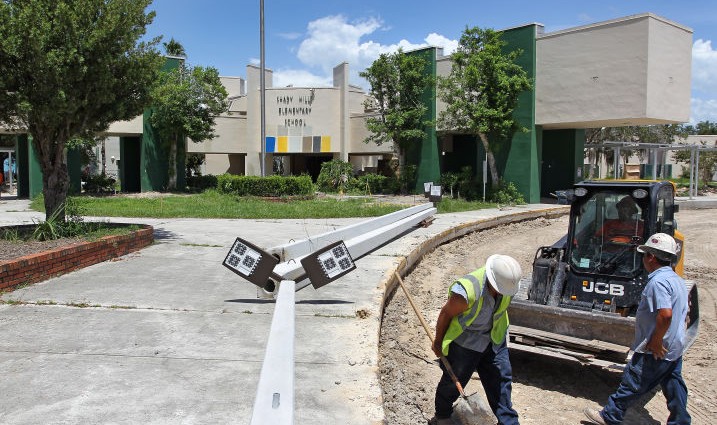Change would send more money to Florida’s aging schools

Florida Department of Education officials are looking for ways to funnel more money to the state's aging schools and their growing backlog of deferred maintenance and repairs.
On Thursday, they proposed a new formula for doling out money from the Public Education Capital Outlay fund, known as PECO. The change would place more emphasis on facilities' age and square footage, and less on the average allocation over the past five years, department government affairs director Tanya Cooper said. Members of the state Board of Education, meeting in Orlando, heard the proposal as they discussed their goals for the 2017 legislative session.
If lawmakers go along, it could impact the Tampa Bay area's largest school districts, which are straining to keep up with building and maintenance costs.
Hillsborough County has a long waiting list of school projects, including air conditioning replacements at several campuses, as it struggles with a budget crisis. Pinellas County officials have resorted to borrowing money so they can complete $125 million in school improvements in the near future rather than waiting years for the money to flow in piecemeal. Pasco County, swimming upstream against fast-paced growth, projects it will fall about $400 million short in capital funding over the next decade.
The proposed change in law "would be driving dollars to where the need is," Linda Champion, the state's deputy education commissioner, explained.
School district leaders said the idea made sense, philosophically.
"Generally speaking, that's a smarter way, I believe, of looking at how PECO funds are distributed," said Connie Milito, lobbyist for Hillsborough schools.
Redirected PECO funds could help, Milito said, noting the central Florida coalition of school districts has requested clearer guidelines in law for distributing the money. But it would be a small piece of what's needed.
That's because PECO's revenue stream, generated from gross receipts taxes on utility bills, has been a dwindling resource over the past several years. Telephone landlines, one of the primary sources, have all but dried up, for instance, while the recipient list has expanded to include charter schools in addition to higher education and K-12 buildings.
For a few years, the public K-12 system received none of the allocation at all. State Agriculture Commissioner Adam Putnam has discussed creating new ways to direct more money into PECO, a move that districts have backed.
At the same time, school boards and superintendents have looked to other means of raising cash for their projects, including local sales taxes and impact fee increases.
They've also asked lawmakers to consider restoring the maximum capital projects property tax rate to $2 per $1,000 of taxable value. The Legislature reduced the cap to $1.50 per $1,000 during the recession, when construction needs were fewer.
"The key is having a balanced set of revenue streams," said Ray Gadd, deputy superintendent of Pasco County schools.
State board member Tom Grady sounded as if he had doubts about the legislative priority, questioning the model that department staff proposed. He noted that, unless other things change, a PECO formula revision would simply amount to a zero-sum game, with some schools winning and others losing.
He didn't press the issue, but asked for more details before offering his support.
Gadd shared the concern.
"The big takeaway for me would be, suddenly it has come to their attention that there are a bunch of school districts that have maintenance needs," he said. "If they start messing with PECO dollars, that pot is already tiny. Nobody is going to get anything out of that deal."
Other state board members sounded enthusiastic about this and other legislative priorities presented, and asked the staff to begin working with lawmakers as soon as possible.
Политика конфиденциальности | Правила пользования сайтом









